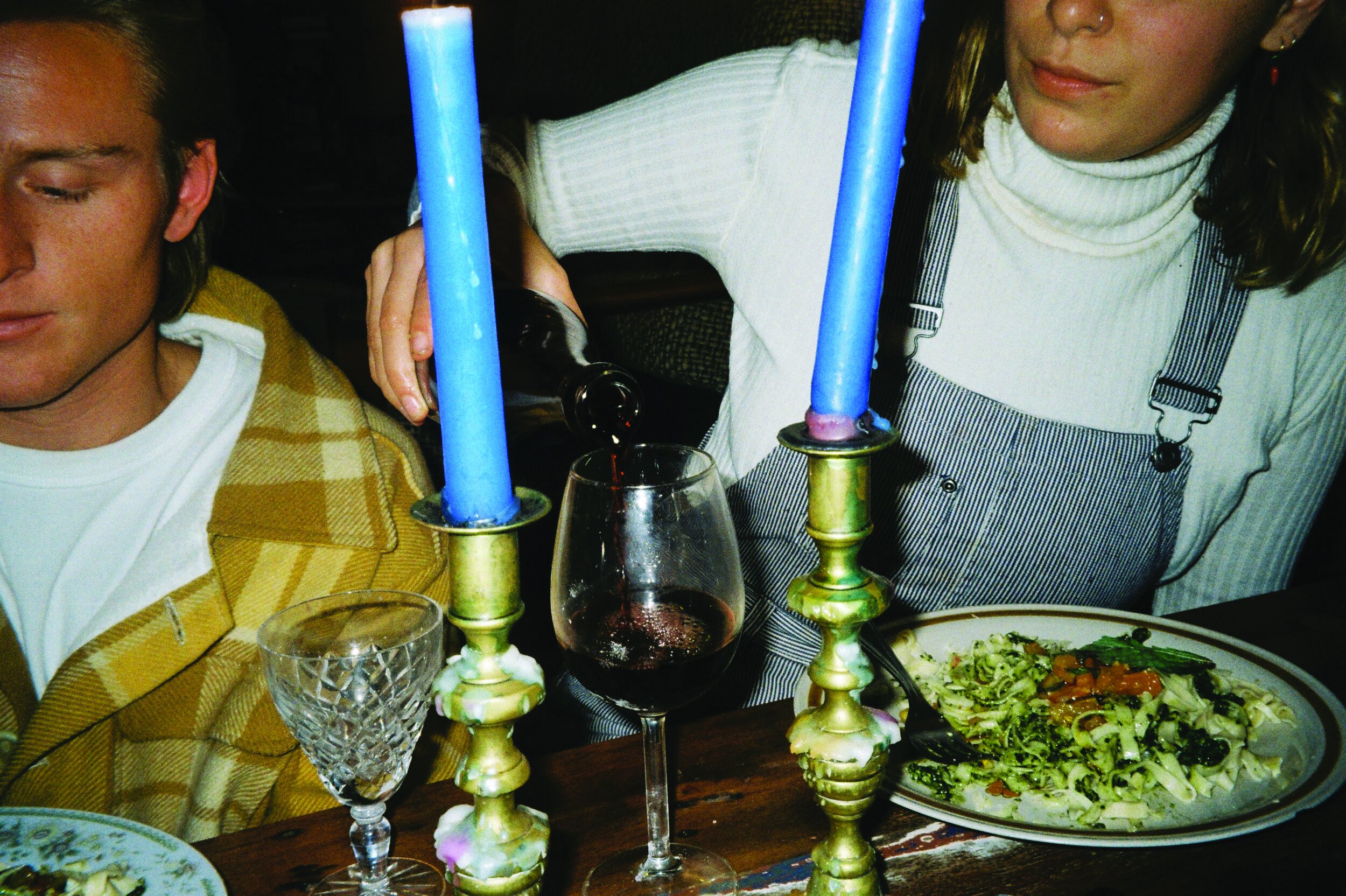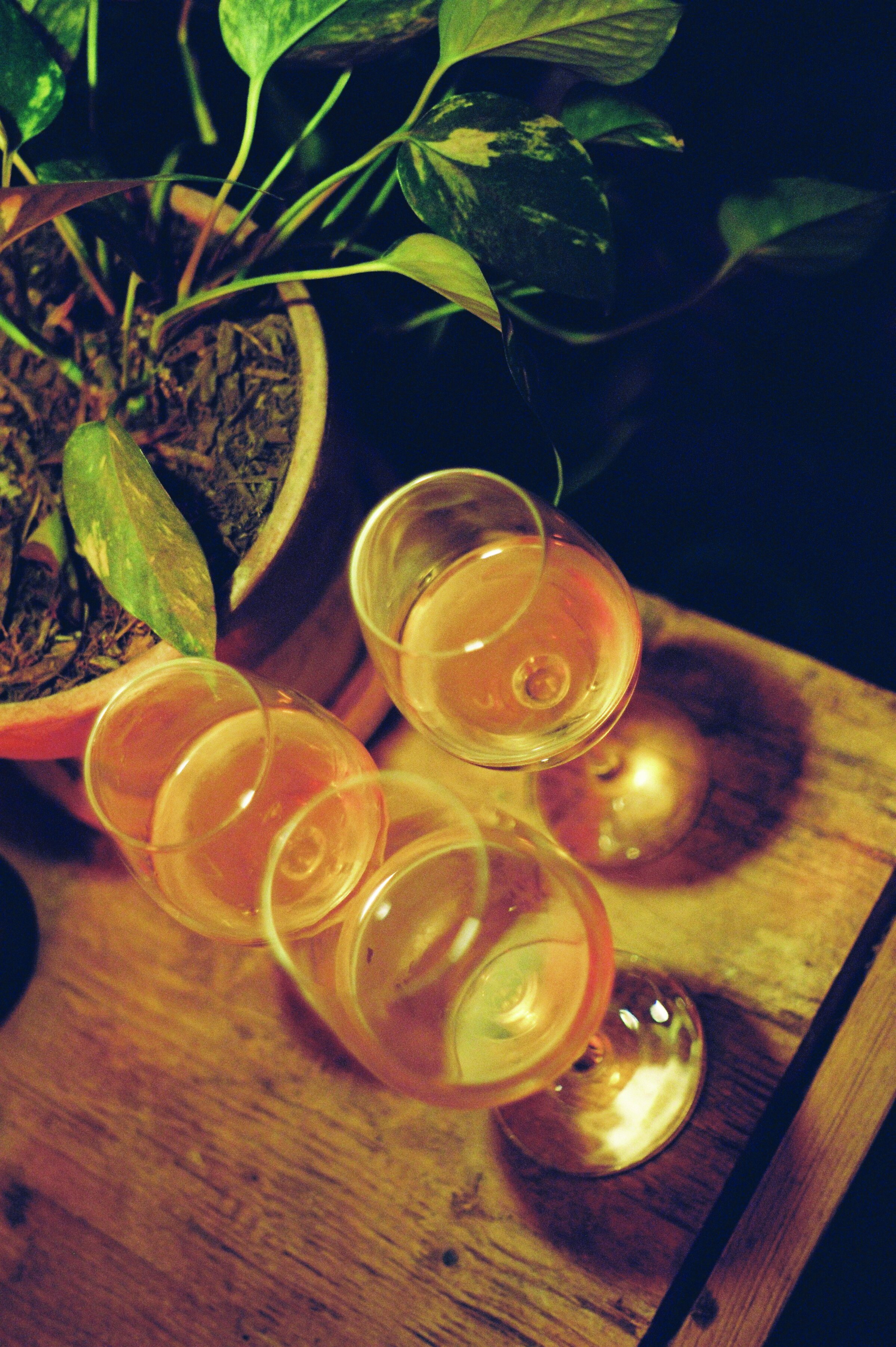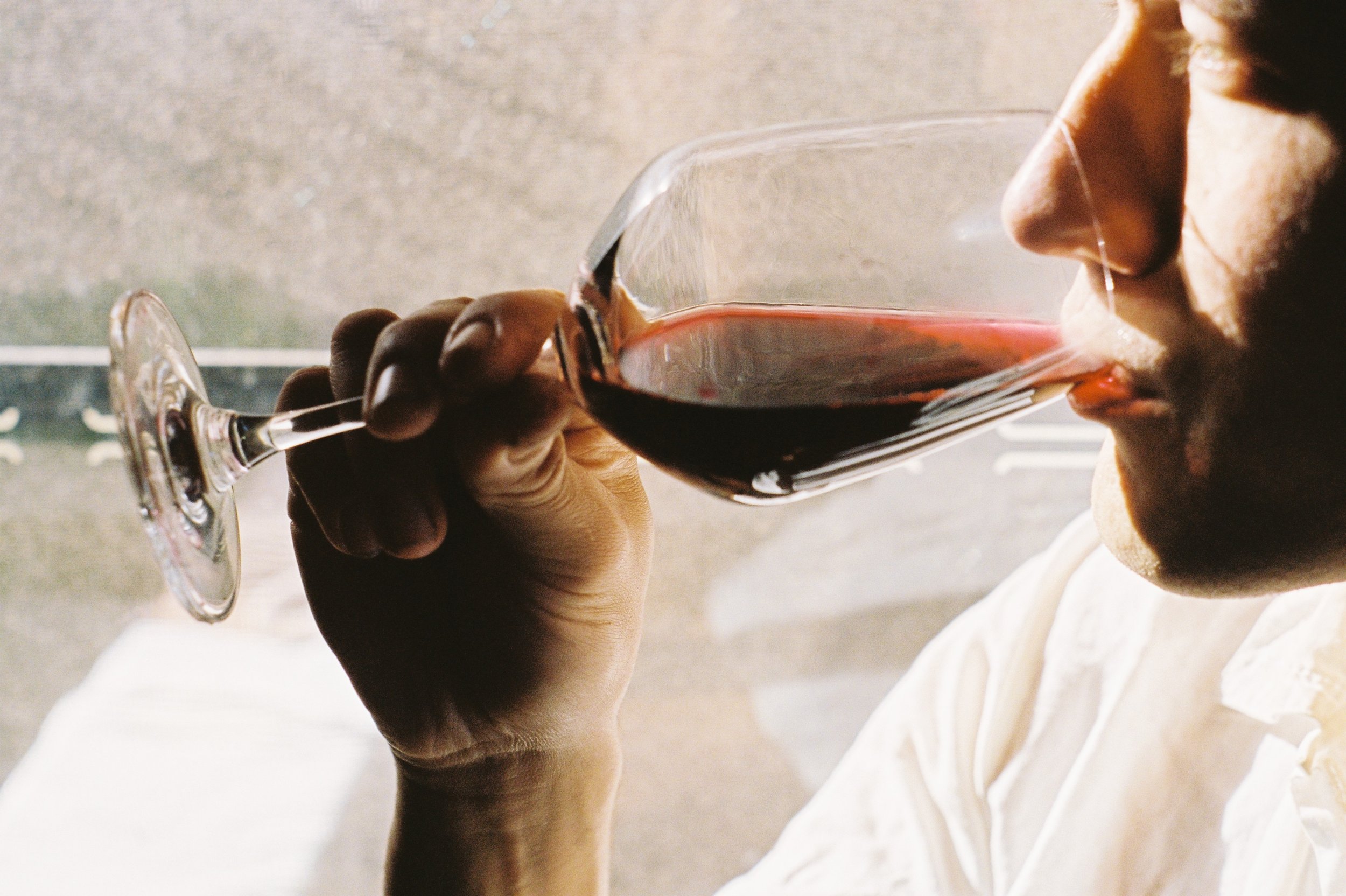I Drink, Therefore I Am
Grape grower, winemaker, wine bar owner and wine slinger Pete Windrim isn’t shying away from the mindful drinking movement – he wants you to join him in raising a glass to it.
Words by Pete Windrim.
Photography by Sunnie Zuleta.
My great-grandfather went MIA in World War I. He was in Egypt and he was presumed dead. On the contrary, he was very much alive and very much drunk. He stumbled off the back of a train as he tried to empty his throbbing bladder. He was rescued by a tribe of Bedouins, who housed him for almost a year, until a passing patrol of Light Horsemen discovered him and shipped him home. My grandfather loved drinking beer so much that when he belched, he said “beer” instead of “pardon”. My father, who also loves a drink, had a favoured introduction at his vineyard for newcomers to the family: he would get rip-roaring drunk and dance on the dining table in his underwear to Cold Chisel.
Coming from this long line of, ahem, bon vivants, and having worked in the wine industry for a long time, I decided to use my new natural wine business, Natural Order Wine, as a platform to encourage consciousness around the consumption of wine.
Since wine was first produced in Georgia in 6000 BC, it has been a conduit to celebration and ceremony. We raise a glass to the newlyweds, the newly born, the newly appointed and the newly departed. There’s pretty much no reason not to drink. So, when we do, let’s try to make it count.
Hot on the heels of the natural wine movement is the low- or no-alcohol movement. These low-alcohol and alcohol-free options are not only disrupting the wine market, they are now one of the market’s fastest growing sectors. Winemakers are responding by picking their grapes earlier to produce wines with a lower alcohol content, which stands in stark contrast to the previous trend of adding more sugar to the wine to boost alcohol content.
The hot trend in the wine market today is a piquette, which has an average alcohol content of just five per cent, about the same as a standard beer. And when it comes to beer, there are now more than 20 alcohol-free beers made in Australia, and the sales of these have doubled in the past 12 months.
If like me, however, you still enjoy a glass of wine of an evening, we have an important decision to make when it comes to what we choose to purchase. We can go to a huge, bargain basement-style bottle shop and buy a very cheap bottle of wine; a wine that is chemically farmed, chemically processed and mass-produced in order to dominate rather than inspire the market. Or we can support small, independent growers, via independent sellers – people who are farming their grapes organically with an emphasis on biodiversity, who don’t use chemicals in their vineyards or wineries, who consider themselves a vital part of the ecosystem rather than in control of it, and who make poetic and expressive natural wines.
Naturally, the price does vary. An entry-level natural wine starts retailing at around $22 a bottle, compared to a bottle of vin headache that starts at around $8 a bottle. But when you’re buying a bottle of natural wine, you’re investing in organic agriculture, you’re supporting small, family-run businesses, and you’re experiencing a true representation of what wine should taste like when it hasn’t been stripped of its integrity with chemical fining agents, sterile filtration and buckets of sulphur. It’s not only a more noble and responsible choice, it’s also a lot tastier and more enjoyable.
I would argue that it’s our duty as consumers, then, to give natural wines the reverence and respect they deserve. This is where the consciousness is amplified. We need to give wine time and space. To pick up the bottle and get curious about it. Where are the grapes from? Who is the winemaker? Check out their website. “Oh, they have beehives”; “wow, they ferment in giant eggs”; “look, their sheep weed the vineyard for them”, and so on. There are marvellous and soulful stories out there that help you fall in love with the makers and their products and you will never want to set foot in that big bottle shop ever again.
Equally as important as getting to know the wine intimately, is how we actually drink it. This includes the setting, the mood, the company. Lower the lights, put on some music, light some candles and for God’s sake get off the couch. Assess the wine. Note it’s appearance, it’s colour, it’s complexion. Talk about it. Note the aroma, and don’t just look for berries or timber. Look for memories, thrilling experiences, music, films and ex-lovers. And taste it. Feel the whoosh. Note the beautiful journey the liquid takes from your tongue, to your stomach, up to your mind, and then see it drift slowly like a falling leaf down into your heart. This is where you will fall in love with the wine, where you will understand the wine and where the wine will remain.
Your body is the most reliable and accurate tasting instrument that exists. Your instrument decides whether you like a wine or not and how much you need. For some it’s a glass or two a week; for others a glass or two a night; and for others still it could be laying under the tap Homer Simpson-style. Your body knows, listen to it.
The vessel you drink from is also important. My personal favourite is a small ceramic bowl. Clasped in reverence with your two cupped hands, it brings an added connection to the earth element and acts as a reminder that the first wines ever produced were fermented in clay urns, which the Georgians called kvevri. The circular shape also serves to steady and ground the wine – being shorter than a glass, a bowl removes the temptation to spin the wine around at high speed, effectively abusing the wine, lest it spill. Many natural wines are made without electricity and rely on gravity rather than pumps to move the wine, so they are sensitive and should be treated calmly. The bowls allow you to take your time with the wine. To sip it, rather than throw it back. And they bring a little ceremony to the wine experience. A little more consciousness. And in a time of heightened tensions and confusion, coupled with a simmering collective fear over the state of our climate, it’s important to make the right decisions and to support the right people. Natural wine is a magical thing. It is to be enjoyed, revered and respected. Dance with it, dine with it, clutch it tightly for all of its biological brilliance. Enjoy it, in moderation.




